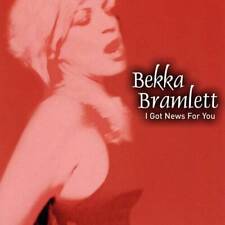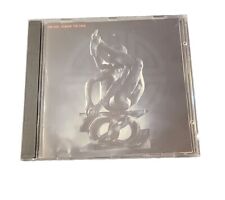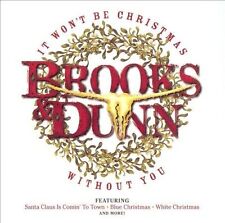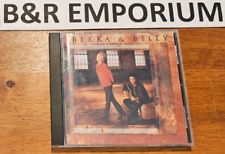|
Peter Green The youngest of four children, Peter Allen Greenbaum was born on October 29, 1946, in London's working-class East End. He first became interested in the guitar at age ten, when one of his brothers brought home a cheap Spanish guitar, which eventually became Peter's hand-me-down: "My brother showed me a few chords, and I took off." Early influences were Hank B. Marvin (of The Shadows), blues guitarists Muddy Waters and B.B. King, and "some old Jewish songs." Greenbaum (who was calling himself Peter Green by age fifteen) played bass in several amateur bands before being invited by keyboardist Peter Bardens to play lead in his band, Peter B's Looners (pictured at right), in early 1966. It was here that the nineteen-year-old guitarist first encountered Mick Fleetwood, the group's drummer. He stayed with the Peter B's for three months before leaving to join John Mayall's Bluesbreakers. He had been an avid fan of the Bluesbreakers' guitarist, Eric Clapton, and when Clapton left the group to go to Greece for awhile, Mayall had hired another guitarist. Mayall recalls, "Eric's replacement  wasn't nearly as good and this cockney kid-- Peter Green-- kept coming down to all the gigs and saying, 'Hey, what are you doing with him; I'm much better than he is. Why he's no good at all!'...he got really nasty about it, so finally I let him sit in." Peter did about three gigs with the band before Clapton returned. Finally, six months later, when Clapton left the band for good, Peter was immediately hired as his replacement. "I knew Peter was going to have to deal with the Clapton comparisons," says Mayall, and fans were often openly hostile towards the new guitarist, shouting out that they wanted Eric. In time, however, Green proved himself to be a formidable talent in his own right-- "his emerging voice aspired to say as much as possible in a few well-chosen notes delivered with a haunting, sweet-yet-melancholy tone." With his instrumental piece called 'The Supernatural', Peter "cemented his growing reputation both in England and abroad." It was in the Bluesbreakers that Green solidified his relationship with the rhythm section, John McVie, and Mick Fleetwood; when he left the group in 1967, Green would recruit the two in order to found his own band, Peter Green's Fleetwood Mac. wasn't nearly as good and this cockney kid-- Peter Green-- kept coming down to all the gigs and saying, 'Hey, what are you doing with him; I'm much better than he is. Why he's no good at all!'...he got really nasty about it, so finally I let him sit in." Peter did about three gigs with the band before Clapton returned. Finally, six months later, when Clapton left the band for good, Peter was immediately hired as his replacement. "I knew Peter was going to have to deal with the Clapton comparisons," says Mayall, and fans were often openly hostile towards the new guitarist, shouting out that they wanted Eric. In time, however, Green proved himself to be a formidable talent in his own right-- "his emerging voice aspired to say as much as possible in a few well-chosen notes delivered with a haunting, sweet-yet-melancholy tone." With his instrumental piece called 'The Supernatural', Peter "cemented his growing reputation both in England and abroad." It was in the Bluesbreakers that Green solidified his relationship with the rhythm section, John McVie, and Mick Fleetwood; when he left the group in 1967, Green would recruit the two in order to found his own band, Peter Green's Fleetwood Mac. The band went over quite well at their first public appearance on August 13, 1967, at the 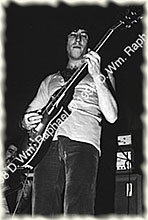 Windsor Jazz and Blues Festival. A few months later, McVie agreed to join Green, Fleetwood, and Jeremy Spencer (bassist Bob Brunning had known he was only temporary); the band's first album, released in February, 1968, brought them much acclaim as "the new crusaders of the English blues movement." Peter, who had become "the reigning hero of the booming British blues scene," began to feel frustrated, wanting the band to move beyond pure blues and parodies; he did not, however, feel that Spencer was going to take much initiative in terms of growing beyond that basic repertoire. Therefore, Green hired a third guitarist, Danny Kirwan, to help take some of the weight off his own shoulders. Windsor Jazz and Blues Festival. A few months later, McVie agreed to join Green, Fleetwood, and Jeremy Spencer (bassist Bob Brunning had known he was only temporary); the band's first album, released in February, 1968, brought them much acclaim as "the new crusaders of the English blues movement." Peter, who had become "the reigning hero of the booming British blues scene," began to feel frustrated, wanting the band to move beyond pure blues and parodies; he did not, however, feel that Spencer was going to take much initiative in terms of growing beyond that basic repertoire. Therefore, Green hired a third guitarist, Danny Kirwan, to help take some of the weight off his own shoulders. Green's work on Mr. Wonderful, English Rose, Then Play On, and the live Boston Tea Party albums "chronicle a guitar genius at the peak of his abilities." His instrumental composition, 'Albatross,' gave the band their first British number one single; his 'Black Magic Woman' later became a massive hit for Carlos Santana. Other standout tracks include 'Stop Messin' Around,' 'Need Your Love So Bad ,' 'Oh Well,' and 'Rattlesnake Shake.' However, as the band became more and more successful, Peter Green seemed to be making a mental and emotional decline. He had been experimenting with acid while the band was on the road, and the drugs were negatively altering his personality. An incident in Munich seemed to be the last straw: "He disappeared for three days...he was getting spiked or dosed with acid," John McVie recalls, "and when he came back, that was it: everything went from there." His autobiographical song 'Man of the World' was "a hauntingly sorrowful song about a man who has everything he wants, except the companion he so obviously craves." It was around this time that Peter began to loathe the fame and fortune he had acquired, and became extremely religious, appearing on-stage wearing crucifixes and flowing robes. 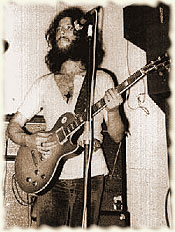 He proposed to the band that they only keep what was absolutely necessary financially and give the rest of the money away to charities. Green said he had a vision of an angel holding a starving Biafran child in her arms, and the vision prompted him to make his charitable proposal: "I thought I had too much money to be happy and normal. Thousand of pounds is just too much for a working person to handle all of a sudden, and I felt I didn't deserve it." Mick Fleetwood was resistant to the idea from the very beginning (he did not feel the band was making any fortunes anyway), yet John McVie said he initially went along with this plan because "there was no reason not to." He soon came to his senses when he realized that the proposition was coming from "a guy who'd just been given lots of acid." Faced with the band's refusal to give away all monetary gains, Peter Green decided to leave Fleetwood Mac, but not before writing the haunting 'Green Manalishi,' which seems to document his struggle to stop his descent into madness. 'The Green God' left Fleetwood Mac in a responsible manner, and his departure shocked and saddened the music world. His last show with the band was on May 28, 1970. He proposed to the band that they only keep what was absolutely necessary financially and give the rest of the money away to charities. Green said he had a vision of an angel holding a starving Biafran child in her arms, and the vision prompted him to make his charitable proposal: "I thought I had too much money to be happy and normal. Thousand of pounds is just too much for a working person to handle all of a sudden, and I felt I didn't deserve it." Mick Fleetwood was resistant to the idea from the very beginning (he did not feel the band was making any fortunes anyway), yet John McVie said he initially went along with this plan because "there was no reason not to." He soon came to his senses when he realized that the proposition was coming from "a guy who'd just been given lots of acid." Faced with the band's refusal to give away all monetary gains, Peter Green decided to leave Fleetwood Mac, but not before writing the haunting 'Green Manalishi,' which seems to document his struggle to stop his descent into madness. 'The Green God' left Fleetwood Mac in a responsible manner, and his departure shocked and saddened the music world. His last show with the band was on May 28, 1970. After leaving the band, he went on to record a "meandering and unfocussed" solo album called The End of the Game-- "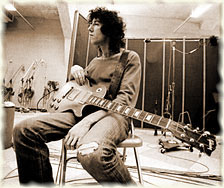 a double reference to the extinction of wildlife and his own withdrawal from life." He had a brief reunion with Fleetwood Mac when Jeremy Spencer left the group (Green flew to America to help them complete the tour, but insisted that their sets consist of nothing but jams of 'Black Magic Woman.') and he was also an uncredited guest on their 1973 Penguin album on the track 'Night Watch.' He 're-emerged' in the late '70's and early '80's with three relatively inconsequential albums, In the Skies, Little Dreamer, and White Sky. He was an uncredited guest on Tusk's 'Brown Eyes'; Peter also contributed to 'Rattlesnake Shake' and 'Super Brains' on Mick Fleetwood's solo album, The Visitor, before retiring again. He currently lives with his mother, brother, and sister-in-law outside of London. Green was recently the subject of a biography by British author Martin Celmins, Peter Green, Founder of Fleetwood Mac. He has one daughter, Rosebud, the result of his brief marriage to Jane Samuel in the late seventies. a double reference to the extinction of wildlife and his own withdrawal from life." He had a brief reunion with Fleetwood Mac when Jeremy Spencer left the group (Green flew to America to help them complete the tour, but insisted that their sets consist of nothing but jams of 'Black Magic Woman.') and he was also an uncredited guest on their 1973 Penguin album on the track 'Night Watch.' He 're-emerged' in the late '70's and early '80's with three relatively inconsequential albums, In the Skies, Little Dreamer, and White Sky. He was an uncredited guest on Tusk's 'Brown Eyes'; Peter also contributed to 'Rattlesnake Shake' and 'Super Brains' on Mick Fleetwood's solo album, The Visitor, before retiring again. He currently lives with his mother, brother, and sister-in-law outside of London. Green was recently the subject of a biography by British author Martin Celmins, Peter Green, Founder of Fleetwood Mac. He has one daughter, Rosebud, the result of his brief marriage to Jane Samuel in the late seventies. It would appear that the mind-altering substances that Peter used in his days with Fleetwood Mac have 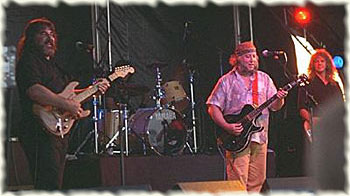 left permanent marks on his psyche. Green himself admits, "I took one too many LSD trips. And that puts me in the Care and Attention category." He spends much of his time watching television and going for walks, and also attends a day center. He "hardly ever touches" the guitar-- "I'm on some medication-- I don't know what it is-- but it makes it hard to concentrate. I rarely feel like playing." Green was interviewed as recently as November, 1994, by Guitar Player magazine: "While soft-spoken, self-effacing, and evidently still recovering from past traumas, Peter proved to be articulate, humorous, and very much tuned into his own legacy." left permanent marks on his psyche. Green himself admits, "I took one too many LSD trips. And that puts me in the Care and Attention category." He spends much of his time watching television and going for walks, and also attends a day center. He "hardly ever touches" the guitar-- "I'm on some medication-- I don't know what it is-- but it makes it hard to concentrate. I rarely feel like playing." Green was interviewed as recently as November, 1994, by Guitar Player magazine: "While soft-spoken, self-effacing, and evidently still recovering from past traumas, Peter proved to be articulate, humorous, and very much tuned into his own legacy." Both Mick Fleetwood and John McVie still speak with awed reverence of their former bandmates musical abilities, and harbor a true sense of loss for the charismatic talent that he once was. "You take pot luck when youring him up," says Mick. "You can be saddened or you can be quietly amazed." Fleetwood used to visit Green but eventually found it too difficult to truly sustain a relationship: "I was just so sad I couldn't wave a magic wand and have him be the person I 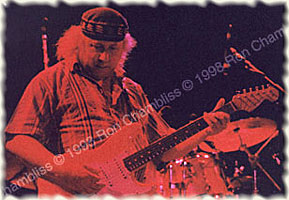 wanted him to be...he was very sick...It's a great loss." McVie recalls, "I prefer to remember him before he left. (Seeing him) upset me too much. It might sound cowardly but I thought it was so sad and such a bloody waste...I'd give anything for a millionth of his talent...But I still have flashes of him. Him laughing. 'Cos before Manalishi, it was a bunch of lads having a great time playing music they loved." As sad as Green's decline may be, fans can be glad he is still alive-- "he is still held in the highest regard by his peers and devotees, some of whom consider him the best white blues guitarist ever." His name appears frequently in global guitar magazines, and Peter was recently the focus of a biography by British author Martin Celmins. Gary Moore, a long-time admirer of Green's and current owner of Peter's 1959 Les Paul, released a tribute album entitled Blues for Greeny. The reclusive Peter appeared recently on stage with Moore. Just before Peter headlined on the August 18, 1996 appearance at the North Bucks Blues and Folk Festival with his band, Peter Green and the Splinter Group, Mick Fleetwood stated, "He's back in the studio, he's actually playing again which is why he's here on this planet. I do seriously believe he has a magic touch. He's enjoying that and I think in about three weeks he's playing his first gig in twelve years at a festival in Germany. I think you will never see Pete back out in the show biz sense of the word but I think you will hear some more music from Peter Green and I hope I'm part of that. I hope that comes to pass." Peter's public appearances have increased recently marked by two new albums entitled Splinter Group and Robert Johnson's Songbook, a European tour, and now a short tour of the United States. Peter was also inducted into the Rock and Roll Hall of Fame on January 12, 1998 at the Waldorf Astoria Hotel in New York City where he played Black Magic Woman with fellow inductee Santana. wanted him to be...he was very sick...It's a great loss." McVie recalls, "I prefer to remember him before he left. (Seeing him) upset me too much. It might sound cowardly but I thought it was so sad and such a bloody waste...I'd give anything for a millionth of his talent...But I still have flashes of him. Him laughing. 'Cos before Manalishi, it was a bunch of lads having a great time playing music they loved." As sad as Green's decline may be, fans can be glad he is still alive-- "he is still held in the highest regard by his peers and devotees, some of whom consider him the best white blues guitarist ever." His name appears frequently in global guitar magazines, and Peter was recently the focus of a biography by British author Martin Celmins. Gary Moore, a long-time admirer of Green's and current owner of Peter's 1959 Les Paul, released a tribute album entitled Blues for Greeny. The reclusive Peter appeared recently on stage with Moore. Just before Peter headlined on the August 18, 1996 appearance at the North Bucks Blues and Folk Festival with his band, Peter Green and the Splinter Group, Mick Fleetwood stated, "He's back in the studio, he's actually playing again which is why he's here on this planet. I do seriously believe he has a magic touch. He's enjoying that and I think in about three weeks he's playing his first gig in twelve years at a festival in Germany. I think you will never see Pete back out in the show biz sense of the word but I think you will hear some more music from Peter Green and I hope I'm part of that. I hope that comes to pass." Peter's public appearances have increased recently marked by two new albums entitled Splinter Group and Robert Johnson's Songbook, a European tour, and now a short tour of the United States. Peter was also inducted into the Rock and Roll Hall of Fame on January 12, 1998 at the Waldorf Astoria Hotel in New York City where he played Black Magic Woman with fellow inductee Santana.
|





 wasn't nearly as good and this cockney kid-- Peter Green-- kept coming down to all the gigs and saying, 'Hey, what are you doing with him; I'm much better than he is. Why he's no good at all!'...he got really nasty about it, so finally I let him sit in." Peter did about three gigs with the band before Clapton returned. Finally, six months later, when Clapton left the band for good, Peter was immediately hired as his replacement. "I knew Peter was going to have to deal with the Clapton comparisons," says Mayall, and fans were often openly hostile towards the new guitarist, shouting out that they wanted Eric. In time, however, Green proved himself to be a formidable talent in his own right-- "his emerging voice aspired to say as much as possible in a few well-chosen notes delivered with a haunting, sweet-yet-melancholy tone." With his instrumental piece called 'The Supernatural', Peter "cemented his growing reputation both in England and abroad." It was in the Bluesbreakers that Green solidified his relationship with the rhythm section, John McVie, and Mick Fleetwood; when he left the group in 1967, Green would recruit the two in order to found his own band, Peter Green's Fleetwood Mac.
wasn't nearly as good and this cockney kid-- Peter Green-- kept coming down to all the gigs and saying, 'Hey, what are you doing with him; I'm much better than he is. Why he's no good at all!'...he got really nasty about it, so finally I let him sit in." Peter did about three gigs with the band before Clapton returned. Finally, six months later, when Clapton left the band for good, Peter was immediately hired as his replacement. "I knew Peter was going to have to deal with the Clapton comparisons," says Mayall, and fans were often openly hostile towards the new guitarist, shouting out that they wanted Eric. In time, however, Green proved himself to be a formidable talent in his own right-- "his emerging voice aspired to say as much as possible in a few well-chosen notes delivered with a haunting, sweet-yet-melancholy tone." With his instrumental piece called 'The Supernatural', Peter "cemented his growing reputation both in England and abroad." It was in the Bluesbreakers that Green solidified his relationship with the rhythm section, John McVie, and Mick Fleetwood; when he left the group in 1967, Green would recruit the two in order to found his own band, Peter Green's Fleetwood Mac. Windsor Jazz and Blues Festival. A few months later, McVie agreed to join Green, Fleetwood, and Jeremy Spencer (bassist Bob Brunning had known he was only temporary); the band's first album, released in February, 1968, brought them much acclaim as "the new crusaders of the English blues movement." Peter, who had become "the reigning hero of the booming British blues scene," began to feel frustrated, wanting the band to move beyond pure blues and parodies; he did not, however, feel that Spencer was going to take much initiative in terms of growing beyond that basic repertoire. Therefore, Green hired a third guitarist, Danny Kirwan, to help take some of the weight off his own shoulders.
Windsor Jazz and Blues Festival. A few months later, McVie agreed to join Green, Fleetwood, and Jeremy Spencer (bassist Bob Brunning had known he was only temporary); the band's first album, released in February, 1968, brought them much acclaim as "the new crusaders of the English blues movement." Peter, who had become "the reigning hero of the booming British blues scene," began to feel frustrated, wanting the band to move beyond pure blues and parodies; he did not, however, feel that Spencer was going to take much initiative in terms of growing beyond that basic repertoire. Therefore, Green hired a third guitarist, Danny Kirwan, to help take some of the weight off his own shoulders. He proposed to the band that they only keep what was absolutely necessary financially and give the rest of the money away to charities. Green said he had a vision of an angel holding a starving Biafran child in her arms, and the vision prompted him to make his charitable proposal: "I thought I had too much money to be happy and normal. Thousand of pounds is just too much for a working person to handle all of a sudden, and I felt I didn't deserve it." Mick Fleetwood was resistant to the idea from the very beginning (he did not feel the band was making any fortunes anyway), yet John McVie said he initially went along with this plan because "there was no reason not to." He soon came to his senses when he realized that the proposition was coming from "a guy who'd just been given lots of acid." Faced with the band's refusal to give away all monetary gains, Peter Green decided to leave Fleetwood Mac, but not before writing the haunting 'Green Manalishi,' which seems to document his struggle to stop his descent into madness. 'The Green God' left Fleetwood Mac in a responsible manner, and his departure shocked and saddened the music world. His last show with the band was on May 28, 1970.
He proposed to the band that they only keep what was absolutely necessary financially and give the rest of the money away to charities. Green said he had a vision of an angel holding a starving Biafran child in her arms, and the vision prompted him to make his charitable proposal: "I thought I had too much money to be happy and normal. Thousand of pounds is just too much for a working person to handle all of a sudden, and I felt I didn't deserve it." Mick Fleetwood was resistant to the idea from the very beginning (he did not feel the band was making any fortunes anyway), yet John McVie said he initially went along with this plan because "there was no reason not to." He soon came to his senses when he realized that the proposition was coming from "a guy who'd just been given lots of acid." Faced with the band's refusal to give away all monetary gains, Peter Green decided to leave Fleetwood Mac, but not before writing the haunting 'Green Manalishi,' which seems to document his struggle to stop his descent into madness. 'The Green God' left Fleetwood Mac in a responsible manner, and his departure shocked and saddened the music world. His last show with the band was on May 28, 1970. a double reference to the extinction of wildlife and his own withdrawal from life." He had a brief reunion with Fleetwood Mac when Jeremy Spencer left the group (Green flew to America to help them complete the tour, but insisted that their sets consist of nothing but jams of 'Black Magic Woman.') and he was also an uncredited guest on their 1973 Penguin album on the track 'Night Watch.' He 're-emerged' in the late '70's and early '80's with three relatively inconsequential albums, In the Skies, Little Dreamer, and White Sky. He was an uncredited guest on Tusk's 'Brown Eyes'; Peter also contributed to 'Rattlesnake Shake' and 'Super Brains' on Mick Fleetwood's solo album, The Visitor, before retiring again. He currently lives with his mother, brother, and sister-in-law outside of London. Green was recently the subject of a biography by British author Martin Celmins, Peter Green, Founder of Fleetwood Mac. He has one daughter, Rosebud, the result of his brief marriage to Jane Samuel in the late seventies.
a double reference to the extinction of wildlife and his own withdrawal from life." He had a brief reunion with Fleetwood Mac when Jeremy Spencer left the group (Green flew to America to help them complete the tour, but insisted that their sets consist of nothing but jams of 'Black Magic Woman.') and he was also an uncredited guest on their 1973 Penguin album on the track 'Night Watch.' He 're-emerged' in the late '70's and early '80's with three relatively inconsequential albums, In the Skies, Little Dreamer, and White Sky. He was an uncredited guest on Tusk's 'Brown Eyes'; Peter also contributed to 'Rattlesnake Shake' and 'Super Brains' on Mick Fleetwood's solo album, The Visitor, before retiring again. He currently lives with his mother, brother, and sister-in-law outside of London. Green was recently the subject of a biography by British author Martin Celmins, Peter Green, Founder of Fleetwood Mac. He has one daughter, Rosebud, the result of his brief marriage to Jane Samuel in the late seventies. left permanent marks on his psyche. Green himself admits, "I took one too many LSD trips. And that puts me in the Care and Attention category." He spends much of his time watching television and going for walks, and also attends a day center. He "hardly ever touches" the guitar-- "I'm on some medication-- I don't know what it is-- but it makes it hard to concentrate. I rarely feel like playing." Green was interviewed as recently as November, 1994, by Guitar Player magazine: "While soft-spoken, self-effacing, and evidently still recovering from past traumas, Peter proved to be articulate, humorous, and very much tuned into his own legacy."
left permanent marks on his psyche. Green himself admits, "I took one too many LSD trips. And that puts me in the Care and Attention category." He spends much of his time watching television and going for walks, and also attends a day center. He "hardly ever touches" the guitar-- "I'm on some medication-- I don't know what it is-- but it makes it hard to concentrate. I rarely feel like playing." Green was interviewed as recently as November, 1994, by Guitar Player magazine: "While soft-spoken, self-effacing, and evidently still recovering from past traumas, Peter proved to be articulate, humorous, and very much tuned into his own legacy." wanted him to be...he was very sick...It's a great loss." McVie recalls, "I prefer to remember him before he left. (Seeing him) upset me too much. It might sound cowardly but I thought it was so sad and such a bloody waste...I'd give anything for a millionth of his talent...But I still have flashes of him. Him laughing. 'Cos before Manalishi, it was a bunch of lads having a great time playing music they loved." As sad as Green's decline may be, fans can be glad he is still alive-- "he is still held in the highest regard by his peers and devotees, some of whom consider him the best white blues guitarist ever." His name appears frequently in global guitar magazines, and Peter was recently the focus of a biography by British author Martin Celmins. Gary Moore, a long-time admirer of Green's and current owner of Peter's 1959 Les Paul, released a tribute album entitled Blues for Greeny. The reclusive Peter appeared recently on stage with Moore. Just before Peter headlined on the August 18, 1996 appearance at the North Bucks Blues and Folk Festival with his band, Peter Green and the Splinter Group, Mick Fleetwood stated, "He's back in the studio, he's actually playing again which is why he's here on this planet. I do seriously believe he has a magic touch. He's enjoying that and I think in about three weeks he's playing his first gig in twelve years at a festival in Germany. I think you will never see Pete back out in the show biz sense of the word but I think you will hear some more music from Peter Green and I hope I'm part of that. I hope that comes to pass." Peter's public appearances have increased recently marked by two new albums entitled Splinter Group and Robert Johnson's Songbook, a European tour, and now a short tour of the United States. Peter was also inducted into the Rock and Roll Hall of Fame on January 12, 1998 at the Waldorf Astoria Hotel in New York City where he played Black Magic Woman with fellow inductee Santana.
wanted him to be...he was very sick...It's a great loss." McVie recalls, "I prefer to remember him before he left. (Seeing him) upset me too much. It might sound cowardly but I thought it was so sad and such a bloody waste...I'd give anything for a millionth of his talent...But I still have flashes of him. Him laughing. 'Cos before Manalishi, it was a bunch of lads having a great time playing music they loved." As sad as Green's decline may be, fans can be glad he is still alive-- "he is still held in the highest regard by his peers and devotees, some of whom consider him the best white blues guitarist ever." His name appears frequently in global guitar magazines, and Peter was recently the focus of a biography by British author Martin Celmins. Gary Moore, a long-time admirer of Green's and current owner of Peter's 1959 Les Paul, released a tribute album entitled Blues for Greeny. The reclusive Peter appeared recently on stage with Moore. Just before Peter headlined on the August 18, 1996 appearance at the North Bucks Blues and Folk Festival with his band, Peter Green and the Splinter Group, Mick Fleetwood stated, "He's back in the studio, he's actually playing again which is why he's here on this planet. I do seriously believe he has a magic touch. He's enjoying that and I think in about three weeks he's playing his first gig in twelve years at a festival in Germany. I think you will never see Pete back out in the show biz sense of the word but I think you will hear some more music from Peter Green and I hope I'm part of that. I hope that comes to pass." Peter's public appearances have increased recently marked by two new albums entitled Splinter Group and Robert Johnson's Songbook, a European tour, and now a short tour of the United States. Peter was also inducted into the Rock and Roll Hall of Fame on January 12, 1998 at the Waldorf Astoria Hotel in New York City where he played Black Magic Woman with fellow inductee Santana.